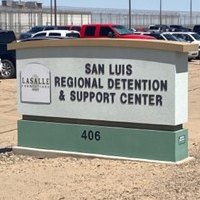What Are Immigration Bonds?
Immigration bonds are financial guarantees provided to the U.S. government to ensure that an individual detained by Immigration and Customs Enforcement (ICE) complies with court requirements and attends all scheduled hearings. These bonds serve as a means to release detainees from custody while they navigate their immigration cases.
Types of Immigration Bonds
Understanding the types of immigration bonds is essential for determining eligibility and choosing the right option for release. There are two main categories:
1. Delivery Bond (G-566 Form)
A delivery bond allows the release of an individual detained by ICE under the condition that they attend all court proceedings and comply with orders. Key points include:
- Eligibility: Requires a Notice of Custody Conditions and an arrest warrant.
- Purpose: Ensures court appearances while granting temporary freedom.
- Bond Amount: Set by ICE or an immigration judge based on various factors, including flight risk and criminal history.
2. Voluntary Departure Bond
This bond is granted to individuals who voluntarily agree to leave the U.S. within a specified timeframe. Important aspects include:
- Refundable Nature: Fully refundable upon departure within the stipulated period.
- Forfeiture: Non-compliance results in bond forfeiture and potential additional penalties.
How to Obtain an Immigration Bond
Securing an immigration bond involves specific steps. Here’s a detailed guide:
Step 1: Determine Eligibility
Not all detainees are eligible for bonds. Factors such as criminal history, flight risk, and ongoing legal issues play a crucial role.
Step 2: Bond Hearing
If ICE denies a bond, the individual can request a hearing before an immigration judge. Evidence supporting flight risk mitigation and community ties can influence the judge’s decision.
Step 3: Payment of the Bond
Bonds can be paid by:
- Cash Payment: Made directly to ICE.Cebonds
- Surety Bonds: Managed by immigration bond agents or companies.
Role of Immigration Bond Companies
Immigration bond companies act as intermediaries, helping families and friends secure bonds for detained individuals. Their services include:
- Financing Options: Flexible payment plans for bond amounts.
- Legal Assistance: Guidance on completing forms and navigating the process.
Factors Affecting Bond Amounts
Bond amounts vary based on:
- Risk Assessment: Flight risk and criminal record.
- Immigration Status: Individuals with unresolved statuses may face higher bond requirements.
- Family and Community Ties: Strong ties can result in lower bond amounts.
Benefits of Immigration Bonds
Immigration bonds offer several advantages for detainees and their families:
- Freedom During Proceedings: Allows detainees to prepare their cases outside detention.
- Reunification with Family: Detainees can spend time with loved ones during the process.
- Access to Legal Counsel: Enables better communication and preparation with attorneys.
Challenges in the Immigration Bond Process
Navigating the immigration bond process can be challenging due to:
- Complex Procedures: Legal documentation and compliance requirements.
- High Costs: Bond amounts can range from $1,500 to $25,000.
- Limited Information: Many families face difficulties accessing accurate and timely guidance.
Frequently Asked Questions
Q: Is the bond amount refundable?
A: Delivery bonds are refundable upon case resolution, provided all court requirements are met. Voluntary departure bonds are refundable if the individual departs within the agreed timeframe.
Q: Can undocumented immigrants pay for bonds?
The bond can only be paid by a resident, citizen, or bail bonds company, which can pay for an immigration bond on behalf of a detainee.
Q: How long does it take to process a bond?
A: Processing times vary but typically range from 1 to 2 business days, depending on payment methods and ICE’s processing speed.
Conclusion
Immigration bonds are critical for ensuring the temporary release of detainees while they navigate their legal cases. Understanding the types, eligibility, and process can empower families to make informed decisions. By seeking assistance from experienced immigration bond companies and legal counsel, individuals can better manage the complexities of getting their family member home .S. immigration system.
Comprehensive Guide to Immigration Bonds


































































































